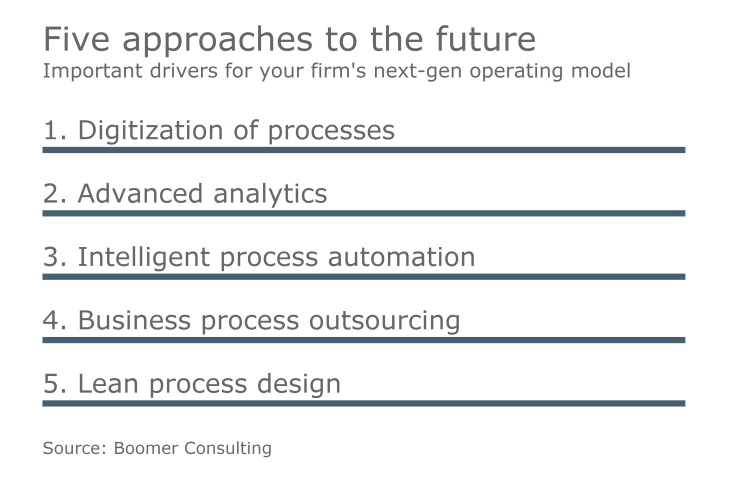There have always been differences between the biggest firms in accounting and the rest — the 97 or 98 percent of firms that have, say, fewer than 20 people. Both groups serve very different client bases, for instance, using different tools; they recruit employees in different ways and offer very different careers. Yet at bottom, accountants have always all been recognizably of the same tribe, with more similarities than differences, performing work that is — allowing for scale — much the same.
But that may not be the case for long, according to Illinois CPA Society president and CEO Todd Shapiro. A series of technological innovations — from big data, to artificial intelligence and machine learning, to Blockchain and robotic process automation — are in the midst of completely reshaping the services of the largest firms, and the skill sets of their employees. Already, the Big Four are looking to hire more entry-level staff with skills in data analysis, and the expectation is that being savvy in technology will soon be as valuable as more traditional accounting skills (if not more so) in looking for a job at the biggest 3 to 4 percent of firms.
But for the rest? Not so much, according to Shapiro: “If you talk to the 43,400 firms with less than 20 people who service Main Street America, they’re not using Blockchain,” he said. “It’s going to take time. It’s not now, not next year, not in seven years. ... Data analytics aren’t going to be for small businesses in the next seven years.”
And while the Big Four and their like have always adopted new technology more quickly, the major difference here is that the skills required of the accountants using the technology will be different, too, which was not the case before. And that’s going to lead to a major split in accounting over the next five to seven years, Shapiro suggested. “It’s going to be more of a divergent profession than we’ve had in the past,” he said. “Is a small firm going to be using computers to read contracts? Their reconciliations won’t be done by computers. And what if a Big Four person wants to go to a small firm? They’re going to say that a computer does most of those tasks, while the small firm will need someone who can do all those tasks. The small firm will say, ‘I don’t have drones doing inventory.’”

Over the next five to seven years, he suggested, this divergence between the staffing demands at the more tech-forward large firms, and those of the more traditional smaller practices, will lead to two different types of accountants, which will complicate many of the profession’s traditional pathways for the near- and mid-term.
In the long run, though, Shapiro believes that progressive midsized firms will drive a reconvergence, hiring the new kind of accountant from the Big Four, and smaller firms will eventually follow along, driven in no small part by their small-business clients: “Even the corner grocery store 15 years from now will have sold out to younger generations that are more tech-savvy,” he explained. “And those businesses will begin to adopt RPA for inventory, accounting, and so on. So who’s going to take care of those businesses?”
His analysis of the future is compelling, if slightly sobering. But my question is this: Do small firms have to wait? Can’t they start diving into these new technologies and services now?
Yes, the expense currently involved in some of them can be prohibitive — but that won’t always be the case, and there are many tools (in data analysis particularly) that are affordable right now. Why not start building those skill sets and the base of those new service offerings sooner, rather than later? One of the beauties of technology is how it lowers barriers to entry — if you’re willing to try.
The time to win the divergence is now, for firms of all sizes.





